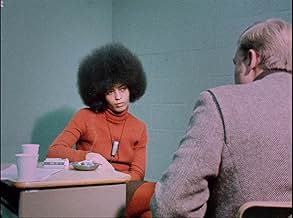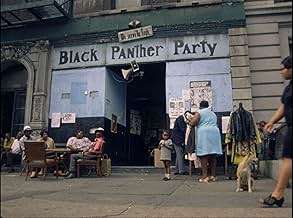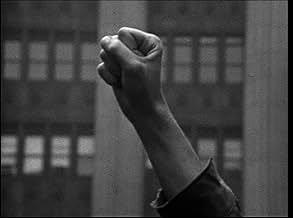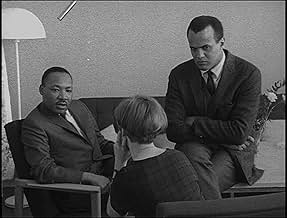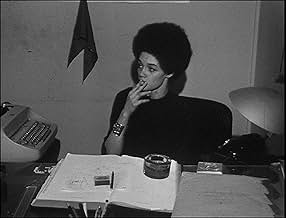Füge eine Handlung in deiner Sprache hinzuFootage shot by a group of Swedish journalists documenting the Black Power Movement in the United States is edited together by a contemporary Swedish filmmaker.Footage shot by a group of Swedish journalists documenting the Black Power Movement in the United States is edited together by a contemporary Swedish filmmaker.Footage shot by a group of Swedish journalists documenting the Black Power Movement in the United States is edited together by a contemporary Swedish filmmaker.
- Regie
- Drehbuch
- Hauptbesetzung
- Auszeichnungen
- 4 Gewinne & 8 Nominierungen insgesamt
- Self
- (Synchronisation)
- Self
- (Archivfilmmaterial)
- Self
- (Synchronisation)
- Self
- (Synchronisation)
- Self
- (Synchronisation)
- Self
- (Archivfilmmaterial)
- Self
- (Archivfilmmaterial)
- Self
- (Archivfilmmaterial)
- Self
- (Synchronisation)
- Self
- (Archivfilmmaterial)
- (as Gustaf VI Adolf of Sweden)
- Self
- (Archivfilmmaterial)
- Self
- (Archivfilmmaterial)
- (Synchronisation)
- Self
- (Archivfilmmaterial)
- (Synchronisation)
- Self
- (Archivfilmmaterial)
- Self - Mother of Ten
- (Archivfilmmaterial)
- Self
- (Synchronisation)
Empfohlene Bewertungen
If you are as enthralled with the 60's, the Civil Rights Movement, the Black Power movement, and the Black Panther Party as I am, then you may like this documentary. Personally, I take every opportunity to view new footage of that era and to hear some of the people from that era who are still alive. TBPM gives you just that.
During these years, Swedish television many times went over to the States, interviewing black radical leaders. We meet Stokely Carmichael, Eldridge Cleaver and in a very unique sequence also Angela Davis in prison. Most of it takes place after the backlash in the late 60s. The movement was deradicalised and we meet the fighters talking about big changes, but you have the feeling that they've lost most of their faith in it. It's a big difference compared to the attitude of Stokely Carmichael during his Stockholm visit in 1967.
Very interesting material, but you miss the analysis. Why was the movement deradicalised? It was not just because of police brutality during riots or supposed FBI actions. And you don't get any explanation about why the movement and other powers had success when it came to reducing racism. There's anyway another USA today, compared to what it was in 1967.
Wusstest du schon
- PatzerAn interviewee says Medgar Evers was killed in 1968, not 1963 which was actually the case
- Zitate
Angela Davis: Well, it's very important to point out that Dr. Martin Luther King was the first prominent public figure to speak out against the war in Vietnam. Especially after Dr. King made his powerful speech at the riverside church, in which he talked about the connection between militarism and racism. There was no way to imagine justice and equality as long as racism was being used as a weapon to attack the people of Vietnam.
Top-Auswahl
Details
- Erscheinungsdatum
- Herkunftsländer
- Offizieller Standort
- Sprachen
- Auch bekannt als
- Хроники движения 'Власть черным' 1967-1975
- Produktionsfirmen
- Weitere beteiligte Unternehmen bei IMDbPro anzeigen
Box Office
- Budget
- 5.500.000 SEK (geschätzt)
- Bruttoertrag in den USA und Kanada
- 273.749 $
- Eröffnungswochenende in den USA und in Kanada
- 17.316 $
- 11. Sept. 2011
- Weltweiter Bruttoertrag
- 280.256 $
- Laufzeit1 Stunde 40 Minuten
- Farbe
- Seitenverhältnis
- 4:3
Zu dieser Seite beitragen



